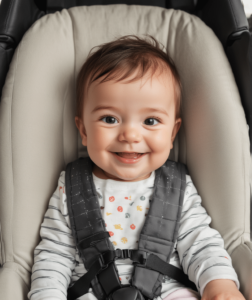Understanding Postpartum Traditions
Postpartum traditions vary widely across cultures, yet all emphasize the importance of care and support for the mother and newborn. These traditions are rooted in the belief that the postpartum period is a critical time for recovery and bonding.
Importance of Postpartum Care

Postpartum care is essential for the well-being of both mother and baby. After childbirth, the mother’s body undergoes significant changes and requires time to heal. Proper care during this period can prevent complications and promote faster recovery.
Key aspects of postpartum care include:
- Rest: Allowing the mother to recover from the physical exertion of childbirth.
- Nutrition: Providing a balanced diet to replenish lost nutrients and support lactation.
- Emotional Support: Addressing postpartum blues and ensuring mental health.
Cultural practices often dictate the specifics of postpartum care. For instance, in many Asian cultures, the postpartum confinement period is strictly adhered to, involving specific dietary restrictions and activities to aid recovery.
Role of Postpartum Nannies
Postpartum nannies, also known as confinement nannies or yue sao in Chinese culture, play a crucial role in this period. They provide specialized care to the mother and newborn, ensuring adherence to traditional postpartum practices.
Responsibilities of a postpartum nanny include:
- Meal Preparation: Cooking nutritious meals that adhere to cultural dietary guidelines.
- Infant Care: Assisting with newborn care, including feeding, bathing, and soothing.
- Household Management: Managing household chores to allow the mother to rest.
| Responsibility | Description |
|---|---|
| Meal Preparation | Preparing meals that support recovery and lactation, often based on traditional recipes. |
| Infant Care | Handling newborn needs such as feeding, diaper changes, and sleep routines. |
| Household Management | Taking care of household tasks like cleaning and laundry to reduce the mother’s workload. |
Hiring a postpartum nanny can be particularly beneficial for first-time mothers or those without nearby family support. The cost of hiring a confinement nanny varies, but many find the investment worthwhile for the peace of mind and expert care provided.
In addition to traditional postpartum nannies, some families opt for a postpartum doula or postpartum nurse who may offer more medical or emotional support, depending on their training and expertise. Each type of support professional has its own unique benefits, making it important to choose one that aligns with the family’s needs and cultural practices.
Bringing Baby Out After Birth

Factors to Consider
When determining how soon to bring a baby out after birth, several factors should be taken into account. These include the baby’s health, the mother’s recovery, and environmental conditions.
- Baby’s Health: A newborn’s immune system is still developing, making them more susceptible to infections. It’s crucial to consult with a healthcare provider to ensure the baby is healthy enough for outings.
- Mother’s Recovery: The postpartum period is a critical time for the mother’s recovery. Physical and emotional well-being should be considered before planning any outings.
- Environmental Factors: Weather conditions, air quality, and exposure to crowded places should be evaluated to minimize risks to the baby.
- Local Health Guidelines: Adherence to local health recommendations and guidelines is essential for ensuring both the baby’s and mother’s safety.
Recommendations from Experts
Healthcare professionals and experts provide various guidelines for new parents considering taking their baby outside. These recommendations are based on ensuring the safety and well-being of both mother and child.
- Consult with Healthcare Providers: Always seek advice from a pediatrician or healthcare provider. They can offer personalized recommendations based on the baby’s health and the mother’s recovery status.
- Initial Outings: Experts often suggest starting with short, controlled outings. These can include walks in the park or visits to family members. Avoid crowded places to minimize exposure to infections.
- Postpartum Nanny Assistance: A postpartum nanny can provide valuable support during this period. They are experienced in newborn care and can help ensure the baby’s safety during outings.
- Adhering to Postpartum Traditions: In some cultures, like with Chinese postpartum rules, there are specific traditions that guide when and how a baby should be introduced to the outside world. These practices often emphasize the importance of the postpartum confinement period.
| Expert Recommendation | Details |
|---|---|
| Pediatrician Consultation | Essential for personalized advice |
| Short, Controlled Outings | Begin with brief walks or family visits |
| Avoid Crowded Places | Minimize exposure to infections |
| Postpartum Nanny Assistance | Provides additional safety and care |
By considering these factors and following expert recommendations, parents can make informed decisions about bringing their baby out after birth, ensuring both safety and well-being. For more details on postpartum care and traditions, visit our sections on postpartum tradition and postpartum care.
Timeline for Introducing Baby to the Outside World
Guidelines from Healthcare Providers
Healthcare providers typically offer guidelines to ensure the safety and well-being of both the baby and the mother when considering outings shortly after birth. These guidelines can vary, but they generally recommend waiting a few weeks before taking a newborn outside.
| Timeline | Healthcare Provider Recommendations |
|---|---|
| 0-2 weeks | Limited outings; focus on rest and recovery |
| 2-4 weeks | Short outings in calm environments |
| 4-6 weeks | Gradual increase in outdoor activities |
| 6+ weeks | More frequent and longer outings, considering the baby’s health |
These recommendations take into account the baby’s developing immune system and the mother’s postpartum recovery. Ensuring both are in good health is crucial before embarking on outdoor activities. For more detailed information on postpartum care, refer to our article on postpartum care.
Cultural Variations in Postpartum Practices
Cultural traditions play a significant role in determining when it is appropriate to introduce a newborn to the outside world. Different cultures have unique practices and beliefs about postpartum confinement and care. For instance, in many Asian cultures, there is a strong adherence to the postpartum confinement period, often lasting around 30 to 40 days.
| Culture | Postpartum Confinement Period | Key Practices |
|---|---|---|
| Chinese | 30-40 days | Strict rest, special diet, limited outings |
| Indian | 40 days | Traditional massages, herbal baths, restricted activities |
| Western | Varies | Focus on gradual reintroduction to normal activities |
In Chinese culture, the practice of “zuo yue zi,” or sitting the month, emphasizes the importance of rest and recovery for the new mother. During this period, outings are minimal, and a confinement nanny, known as a yue sao, may be hired to assist with postpartum tasks and ensure adherence to postpartum tradition.
Understanding these cultural variations is essential for expecting mothers considering hiring a postpartum nanny or a postpartum doula. Each culture’s practices aim to support the health and well-being of both the mother and baby during the critical postpartum period. For more insights into different cultural practices, explore our article on chinese postpartum rules.
Ensuring Baby’s Well-being

Ensuring the well-being of a newborn is a top priority for parents, especially during the early days of life. Here, we discuss key precautions to take and the benefits of early socialization for your baby.
Precautions to Take
When considering bringing a newborn out into the world, several precautions should be taken to ensure their safety and health:
- Hygiene: Ensure that anyone who comes into contact with the baby has washed their hands thoroughly. This prevents the spread of germs.
- Weather Conditions: Dress the baby appropriately for the weather. Avoid exposing them to extreme temperatures.
- Crowded Places: Initially, avoid crowded places where the baby may be exposed to infections.
- Vaccinations: Follow the vaccination schedule advised by healthcare providers to protect against common illnesses.
- Car Safety: Use a properly installed car seat for any travel to ensure the baby’s safety.
| Precaution | Description |
|---|---|
| Hygiene | Handwashing, clean environment |
| Weather Conditions | Appropriate clothing, avoid extremes |
| Crowded Places | Limit exposure to many people |
| Vaccinations | Follow medical guidelines |
| Car Safety | Use car seats correctly |
For more detailed information on postpartum care, you can visit our article on postpartum care.
Benefits of Early Socialization
Early socialization can have numerous benefits for a newborn’s development. These benefits are supported by various postpartum traditions and modern healthcare recommendations:
- Cognitive Development: Interaction with different environments and people can stimulate a baby’s brain development.
- Emotional Well-being: Positive social interactions can help in the emotional development of the baby, making them feel secure and loved.
- Physical Health: Exposure to different surroundings can gradually build the baby’s immune system.
- Bonding: Social outings can provide opportunities for the baby to bond with family members and caregivers.
| Benefit | Description |
|---|---|
| Cognitive Development | Stimulates brain growth |
| Emotional Well-being | Promotes security and love |
| Physical Health | Builds immune system |
| Bonding | Strengthens family ties |
Understanding the benefits and precautions can help parents make informed decisions about when and how to bring their baby out after birth. For those considering additional support, hiring a postpartum nanny or a confinement nanny can provide valuable assistance during this period.


